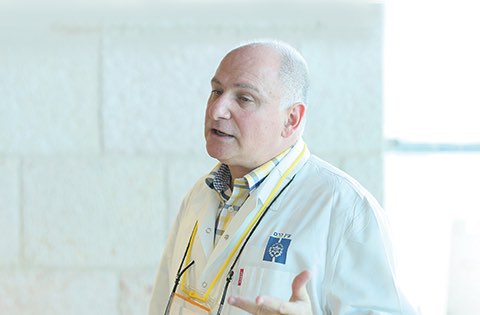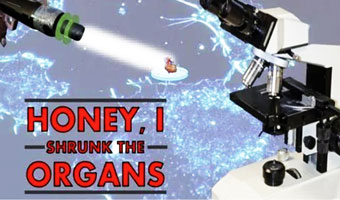
Faced with the new reality of treating an escalating number of individuals with COVID-19, Hadassah Hospital Ein Kerem is preparing to accommodate 200 to 300 patients on ventilators.
“We hope we won’t get there,” Ein Kerem director Prof. Yoram Weiss told Hadassah International supporters during a Zoom meeting on April 7, “but at this point, Hadassah is far away from being at its maximum capabilities.” He added, “People with ailments other than COVID-19 need not be afraid to come to our hospital. We are very well-equipped to treat patients who don’t have the coronavirus.”
In addition, Prof. Weiss noted that Hadassah Ein Kerem is training more physicians and ventilator technicians. “Support staff are very important in the monitoring of these patients,” he said.
While Prof. Weiss emphasized that, at this point, “there is no proven treatment for COVID-19,” he reported that Hadassah is at the forefront of conducting both preclinical and clinical studies to evaluate potential treatments for COVID-19 patients. These studies, he said, are being conducted with sufficient safeguards, so no patients will be harmed.” To ensure that appropriate scientific and ethical standards are followed, an Institutional Review Board meets weekly to evaluate, approve, and prioritize those studies.
Among the treatments being investigated at Hadassah is the drug hydroxychloroquine, routinely used as an anti-malaria medicine, as well as a treatment for rheumatoid arthritis and lupus. Another medicine being looked at is Avigan, shown to be effective in helping COVID-19 patients in Japan. Prof. Weiss explained that Avigan “is a rescue treatment for COVID-19 patients who have suffered severe lung injury.” He notes, however, that Avigan “must be used cautiously because it can prevent the body’s immune system from fighting the virus.”
Another promising treatment being explored is the use of antibodies from recovered COVID-19 patients. Hadassah has already launched a clinical trial to evaluate this approach, beginning by gathering blood samples from recovered COVID-19 patients and measuring the antibody levels in their blood. The plan is to create plasma infusions from those with the highest levels of antibodies and give them to the most acutely ill COVID-19 patients.
Hadassah’s Prof. Dror Mevorach is testing a cell therapy that targets the overreaction of a COVID-19 patient’s immune system, one of the chief complications of this disease. The therapy reduces the patient’s inflammatory response.
In offering advice to those hospitals that have not yet dealt with a major outbreak of COVID-19, Prof. Weiss’ caveat is clear: Understand that a relatively large percentage of the patients who are asymptomatic are indeed infected with the coronavirus. The danger of ignoring this fact, he explained, is that “health care workers will be infected by those asymptomatic patients.” It’s important to tell the hospital workforce, he said, “Don’t come to work if you are sick.”
When asked when we might see a light at the end of the tunnel, Prof. Weiss said, “I have no clue when it will end.” However, he suspects that the strategy will be to ask the elderly and other more vulnerable individuals to remain in isolation while letting young people gradually come out of the current quarantine.









